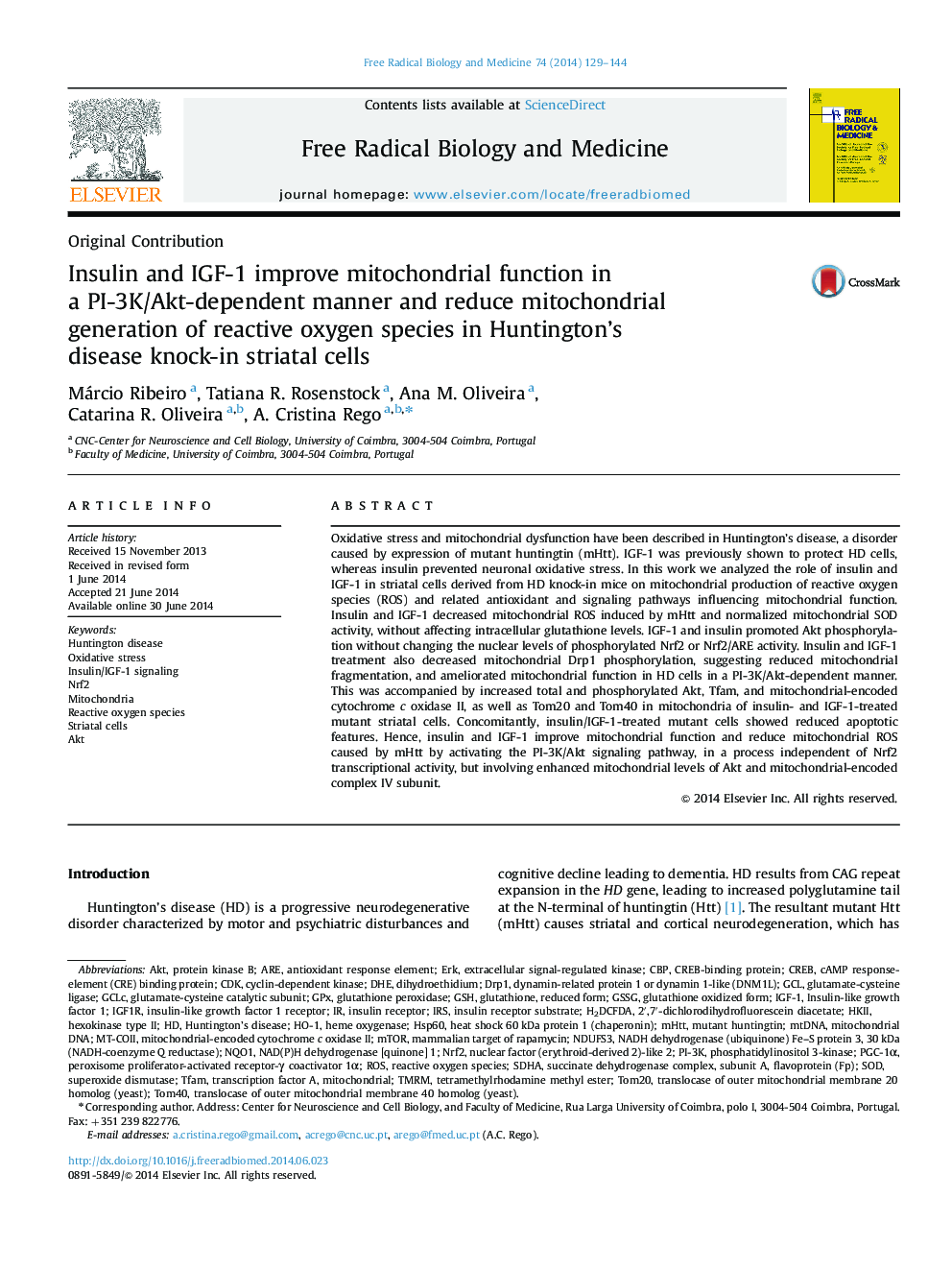| کد مقاله | کد نشریه | سال انتشار | مقاله انگلیسی | نسخه تمام متن |
|---|---|---|---|---|
| 1908301 | 1534968 | 2014 | 16 صفحه PDF | دانلود رایگان |

• Insulin/IGF-1 precludes mHtt-induced mitochondrial ROS formation and SOD activity.
• Insulin/IGF-1 protection in HD cells is independent of Nrf2 transcription activity.
• Insulin/IGF-1 enhances mitochondrial function via PI3K/Akt pathway in HD cells.
• Insulin/IGF-1 increases p-Akt, Tfam, and MT-COII in mitochondria of HD cells.
Oxidative stress and mitochondrial dysfunction have been described in Huntington’s disease, a disorder caused by expression of mutant huntingtin (mHtt). IGF-1 was previously shown to protect HD cells, whereas insulin prevented neuronal oxidative stress. In this work we analyzed the role of insulin and IGF-1 in striatal cells derived from HD knock-in mice on mitochondrial production of reactive oxygen species (ROS) and related antioxidant and signaling pathways influencing mitochondrial function. Insulin and IGF-1 decreased mitochondrial ROS induced by mHtt and normalized mitochondrial SOD activity, without affecting intracellular glutathione levels. IGF-1 and insulin promoted Akt phosphorylation without changing the nuclear levels of phosphorylated Nrf2 or Nrf2/ARE activity. Insulin and IGF-1 treatment also decreased mitochondrial Drp1 phosphorylation, suggesting reduced mitochondrial fragmentation, and ameliorated mitochondrial function in HD cells in a PI-3K/Akt-dependent manner. This was accompanied by increased total and phosphorylated Akt, Tfam, and mitochondrial-encoded cytochrome c oxidase II, as well as Tom20 and Tom40 in mitochondria of insulin- and IGF-1-treated mutant striatal cells. Concomitantly, insulin/IGF-1-treated mutant cells showed reduced apoptotic features. Hence, insulin and IGF-1 improve mitochondrial function and reduce mitochondrial ROS caused by mHtt by activating the PI-3K/Akt signaling pathway, in a process independent of Nrf2 transcriptional activity, but involving enhanced mitochondrial levels of Akt and mitochondrial-encoded complex IV subunit.
graphical abstractFigure optionsDownload high-quality image (284 K)Download as PowerPoint slide
Journal: Free Radical Biology and Medicine - Volume 74, September 2014, Pages 129–144